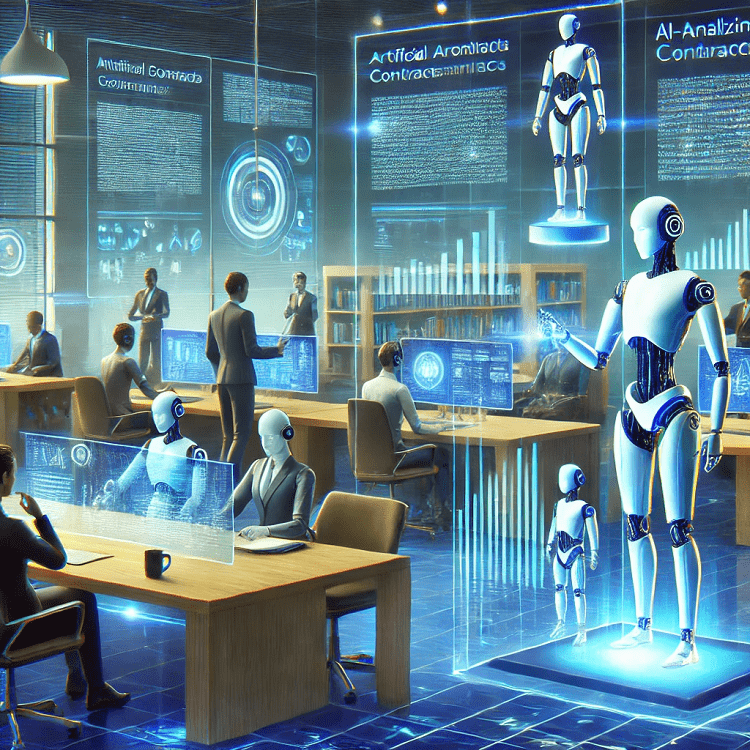AI's Next Leap: From Novelty to Necessity in 2025

As artificial intelligence (AI) continues its rapid evolution, it's moving out of the realm of high-level experimentation and embedding itself into the core operations of businesses worldwide. No longer just a buzzword or a futuristic concept, AI agents—specialized automated tools designed to perform specific tasks—are poised to become indispensable. But their rising prominence isn't due to flashy headlines or moonshot projects; it's because they're tackling the practical, often overlooked tasks that drive efficiency across industries.

A recent report from the Wharton School of Business, surveying over 800 senior business leaders, highlights this shift. The weekly usage of generative AI has nearly doubled—from 37% in 2023 to an astonishing 72% in 2024. This surge signals a pivotal moment: 2025 is set to be the year when AI transitions from a novelty to a necessity, automating routine yet essential tasks and granting teams near superhuman levels of productivity.
Setting Realistic Expectations for AI Progress
Amidst the excitement, there's a growing realism about the limitations of large language models (LLMs). While LLMs have dominated AI news cycles, even leading organizations like OpenAI acknowledge that their flagship GPT model is experiencing diminishing rates of improvement. This has prompted industry-wide introspection about the next phase of AI development. It's a reminder that LLMs, like any tool, deliver the most impact when applied to specific use cases—they're powerful, but not a silver bullet.
In response, many organizations are adopting a mixed-tech approach. By combining technologies such as deep learning, machine learning models, and expert systems alongside LLMs, they're addressing diverse needs more effectively. This strategic integration isn't just efficient; it's a practical alignment with real-world problem-solving.
Businesses are becoming increasingly discerning, prioritizing reliable, smaller models for quick, efficient tasks and reserving large models for complex challenges. This thoughtful blending creates flexible solutions that marry cutting-edge AI with traditional methods, enhancing productivity without overcomplicating workflows.
Leveraging AI Agents for Essential but "Boring" Tasks
Some of the most transformative uses of AI agents are found in the least glamorous corners of business operations. Defying the "moonshot" mindset, companies are discovering immense value in deploying AI agents for seemingly mundane tasks that significantly boost efficiency. Research into AI's role in scientific discovery reveals that AI excels at streamlining idea generation and automating repetitive steps, leaving high-judgment tasks to human experts. By focusing on these often-overlooked areas, organizations can make real gains in efficiency while freeing human talent for strategic work.
Take contract review as an example. A survey by LegalOn Technologies found that legal professionals spend an average of over three hours reviewing a single contract. By harnessing LLMs to automate this process, legal teams can dramatically increase their capacity, allowing them to focus on more impactful work. Importantly, this doesn't have to lead to job displacement. Instead, staff can be reassigned to higher-value areas within the organization, resulting in improved productivity and enhanced customer service.
By empowering LLMs to take action through AI agents, businesses unlock unprecedented potential to reshape operations. These agents aren't just handling routine tasks; they're acting as active partners in daily processes. From scanning unstructured documents to managing customer inquiries, AI agents offer scalable solutions that evolve alongside an organization's growth and changing needs.
These examples illustrate how AI agents can subtly yet profoundly transform essential operations, liberating teams from repetitive tasks to concentrate on strategic objectives. By targeting these often-overlooked areas, organizations not only enhance efficiency but also elevate customer experience and responsiveness. These "behind-the-scenes" applications might lack glamour, but they showcase AI's true power to help businesses adapt, scale, and meet higher expectations—all without the need for high-profile, resource-intensive initiatives.
Practical Applications and Industry Impact
As AI tools become more accessible, industries are reaping the benefits of specialized AI agents designed to tackle specific tasks with precision. This democratization of AI means that even smaller companies, without extensive technical resources, can harness powerful solutions for practical challenges.
Here are a few areas where AI agents are making a significant impact:
- Conversational Interfaces and Document Analysis: In sectors like customer service and legal, AI-powered chat agents are automating client inquiries and analyzing unstructured data from transcripts, audio recordings, and more. The impact is twofold: businesses can serve customers faster, and employees are freed from monotonous tasks.
- Code Review and Security Monitoring: In tech-driven industries, AI agents support software development by continuously reviewing code and scanning for potential vulnerabilities. They provide real-time alerts to prevent issues before they escalate and flag best practices to streamline efficiency.
- Healthcare and Financial Services: AI agents assist with document processing, regulatory compliance, and risk assessment. In highly regulated industries, the time savings and enhanced accuracy are particularly valuable.
By focusing on practical applications, AI agents are unlocking new possibilities, making complex tasks like unstructured data processing and compliance monitoring more accessible and manageable than ever before.
Embracing Practical AI in 2025: Democratizing Access and Empowering Teams
As AI moves into the hands of more teams, a democratized approach is making powerful, real-time AI accessible to organizations of all sizes. Localized AI agents bridge the gap between theoretical capabilities and actionable results, allowing businesses to experiment, test, and deploy AI without heavy reliance on cloud infrastructures. This shift toward local, device-based AI not only enhances security and data privacy but also gives companies greater control over their initiatives while reducing costs tied to data transmission and cloud storage.
Looking ahead to 2025, we'll see AI applications that enable teams to manage data, analyze documents, and refine workflows in real time—all without overhauling existing infrastructure. By adopting a practical approach to AI, businesses can integrate these tools to gain competitive advantages ethically and transparently. The focus on democratized, agent-driven AI highlights a future where powerful technology isn't just for the few but is accessible to organizations everywhere. This transformation will elevate productivity, revolutionize industries, and set new standards for accessibility.
In embracing these advancements, businesses are not just keeping pace with technological evolution—they're positioning themselves at the forefront of a new era. An era where AI is not a distant concept but an everyday ally, driving efficiency, fostering innovation, and opening doors to unprecedented opportunities.




